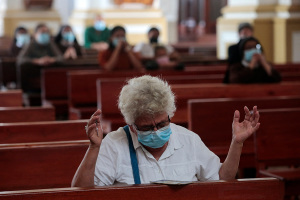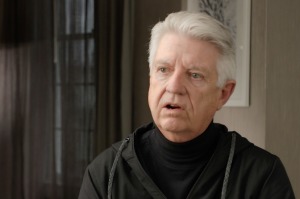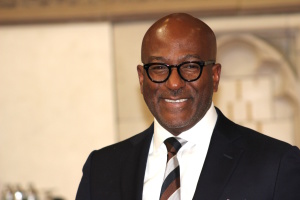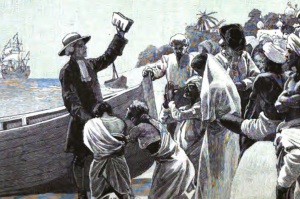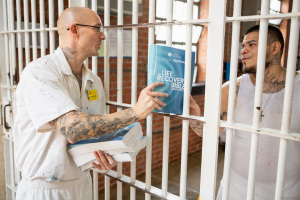Pastors and the IRS Bogeyman
This is a critical election year. Some have said it may be the most important election in our life time. With so much at stake, how great it would be to hear from more pastors and priests, during these times when the government encroaches on more of our freedoms.
Some fear that to preach on the moral issues of the day, like abortion or marriage, might be construed as "preaching on politics." But they are moral issues addressed in the Bible. But I recognize that elements of our culture may have turned them into political ones.
I think part of the reason many pastors and priests are unwilling to speak out on "politics" (so-called) is because they fear the loss of their tax exempt status.
I believe that the perceived threat is far more insidious than the actual threat. The dog's bark is much more prominent than the dog's bite.
I also believe there are some who stoke this fear. For example, Rev. Barry Lynn (a liberal minister) of Americans United for the Separation of Church and State sends out letters like clockwork during election years, warning pastors to not say anything too political or he'll be sure to tell the IRS on them.
For example, during the last president election, Barry Lynn sent out a letter with the headline: "Election Season 2008." He stated, "Dear Religious Leader….The First Amendment protects the right of all Americans, religious leaders included, to speak out on religious, moral and political issues." So far so good.
He goes on more ominously: "However, houses of worship…are barred from endorsing or opposing candidates for public office and may not intervene directly or indirectly in partisan campaigns. Any activity designed to influence the outcome of a partisan election can be construed as intervention. If the IRS determines that your house of worship has engaged in unlawful intervention, it can revoke the institution's tax-exempt status or levy significant fines on the hour of worship or its leaders."
I asked Mat Staver about this letter. He heads Jerry Falwell's law school and also Liberty Counsel, his own organization fighting for religious liberty. He responded, "I think Barry Lynn's letter is bogus. It's basically full of sound and fury, signifying nothing."
Really? Staver continued, "Look at Barry Lynn---how many of these cases has he ever won? Zero. How many churches have ever lost their tax-exempt status since this was put into the IRS code in 1954? Zero. And in fact, if you have that kind of a track record, I don't think his advice is that strong."
Staver also clarified: "Churches can't corporately endorse---say that First Baptist or First Presbyterian Church supports so and so for President or opposes so and so for President. But what churches can do is they can educate, they can give out voter guides that are objective that indicate what the position the candidates [have]." Churches may certainly proclaim what the Scriptures teach on the issues of our day.
Even still, a pastor can endorse a candidate---when speaking only for himself, using this formula: "Rev. Joe Smith. First Church East. (For identification purposes only)." Many pastors I know wouldn't feel comfortable making such an endorsement in the first place. But legally they are free as citizens to do so.
The two hard and fast IRS rules are: A church cannot endorse a candidate, and they can't give money to a candidate. That's it.
I spoke recently with Dr. Robert Jeffress, senior pastor of the huge First Baptist Church of Dallas, author of Twilight's Last Gleaming. He said he often receives letters like the one cited above from Barry Lynn. He views them as a badge of honor.
Dr. Jeffress told me, "Barry Lynn has been after me for years, threatening our tax exempt status as a church. Look, what Barry won't tell you is there is never any church in history that has ever lost its tax exempt status. There has never been a church that's even been fined by the IRS for anything that the pastor has said in the pulpit."
But one church in upstate New York apparently lost its letter of tax exemption ---for one day only---for placing an ad in 1992 saying that to vote for Bill Clinton was to sin against God. That's a far cry from what even bold pastors would want to do.
Dr. Jeffress fears that we have much more to lose from self-censorship in the pulpit than we do from any real threat by the IRS: "I think many pastors are shrinking from the role of being a prophet---some because they don't understand the Bible. You know in the Bible, the prophets didn't just speak to God's own people; they spoke to ungodly rulers, ungodly cultures. And without stuttering or stammering said, 'thus sayeth the Lord,' and today pastors are called to be prophets as well."
Martin Luther King, Jr. said the church is the conscience of the nation. Too bad that that conscience is often silent nowadays when it is most needed "for such a time as this."
















